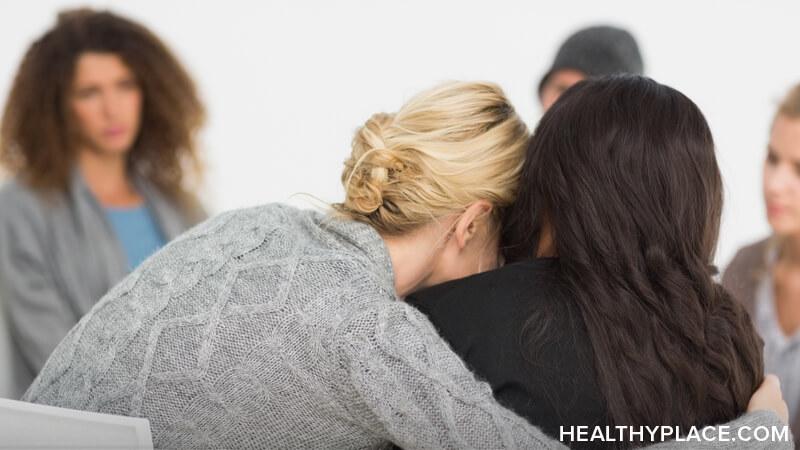Help Someone in Eating Disorder Recovery, But Don't Hurt Yours

It's been crucial for me to learn how to help others in eating disorder recovery without derailing my own since I both mentor young women with eating disorders and am vocal about my own healing from anorexia. I often find myself on the receiving end of phone calls, text messages, and coffee dates which tend to start with the conversation opener, "I don't know who else I can trust to share this with, but I have an issue with food and body image. Can we talk about it?"
I am both honored and humbled when people confide in me their pain, fear, and desire to heal. I affirm the bravery it takes to expose their secret—to choose raw honesty over denial and pretense. I listen as they disclose their stories, and I reciprocate with mine if the interaction calls for it. But I also initiate boundaries in these relationships because my healing is still in process, and I won't jeopardize it for anyone, even those I fiercely want to support. So below are five ground rules I created for myself to help others in their eating disorder recovery without derailing my own.
5 Guidelines to Help Others in Their Eating Disorder Recovery
I keep these reminders at the forefront of any mentoring relationship I enter when the other person has an eating disorder too. Boundaries are healthy and constructive—they ensure that my attitude is compassionate, my advice is useful, and both my physical and emotional wellbeing are protected; otherwise, I am of no benefit to anyone else who seeks me out for help in their eating disorder recovery.
- I know when I am out of my depth, then I refer to a professional. Sometimes I feel too vulnerable to lend energy to a discussion that could rub against my own insecurities. Sometimes I just don't have the knowledge or qualifications to speak into a certain issue. In those cases, I need to recognize my limits and refer to trained clinicians who can offer therapeutic resources and support.
- I show genuine care, but avoid being too emotionally invested. I have a tendency to bring other people's burdens home with me and dwell on them for days. I become stuck in the tension which then paralyzes me to take any form of meaningful action. This pattern has shown me there is a line between empathy and enmeshment, so if I start to obsess, it's time to carve out distance.
- I'm honest about my experience without needless over-sharing. My eating disorder has thrust me into dark and desolate circumstances, but those I mentor will not hear the graphic details of my personal story. This does not mean I am inauthentic—I just find no reason to delve into specifics unless my agenda is to seek attention or dominate the conversation, neither of which is helpful.
- I hold myself accountable in continuing to do my recovery work. If the advice I communicate does not align with the behaviors and mindsets I live out behind the scenes, then I need to check myself. I have no business telling others how their bodies are to be accepted, food is to be savored, and exercise is not to be abused if those truths don't inform my decisions in recovery.
- I realize I am not a savior and cannot force other people to heal. No matter how much I want people to discover freedom from their eating disorders, it's not my job to rescue them. Ultimately, each individual must choose their own healing, or it will not be sustainable. So when I catch myself pushing too hard to orchestrate my desired result, I have to release that urge to save—or control.
Have you been in a position of wanting to help others in eating disorder recovery without derailing your own? What boundaries or parameters work for you in this area? Please share your insights in the comment section below, and visit HealthyPlace's referral and hotline page for resources that can be useful.
APA Reference
Schurrer, M.
(2020, April 29). Help Someone in Eating Disorder Recovery, But Don't Hurt Yours, HealthyPlace. Retrieved
on 2025, December 22 from https://www.healthyplace.com/blogs/survivinged/2020/4/help-someone-in-eating-disorder-recovery-but-dont-hurt-yours